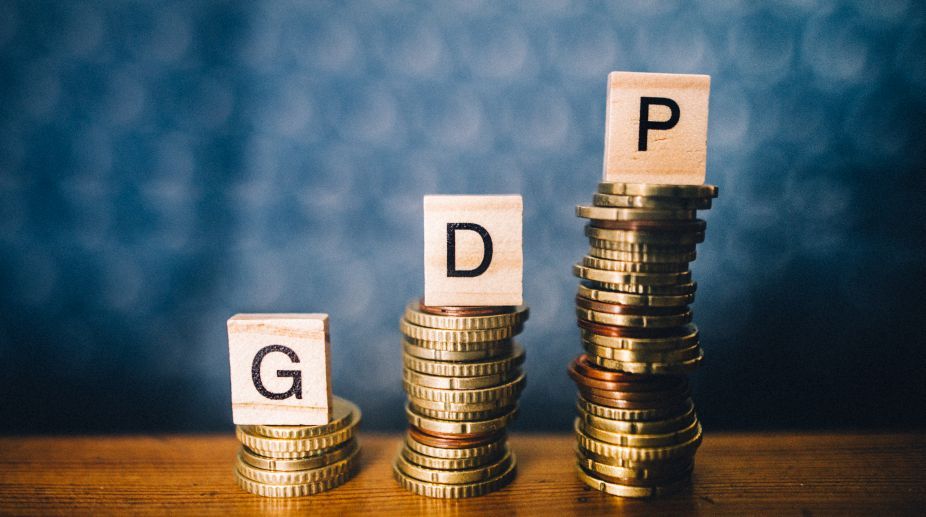India’s annual GDP growth projected to be between 7-7.2 pc in FY25: Deloitte
Dr. Rumki Majumdar from Deloitte India said that India’s economy is emerging with resilience as the dust settles after a high-stakes elections period.

Representational image (Photo: Getty Images)
Ahead of the release of official data on Indian GDP growth in the second quarter, industry chamber Ficci said on Monday that the July-September GDP is expected to improve to 6.2 per cent and rise further to 6.7 per cent in the third quarter of current fiscal.
Pulled down by sluggish manufacturing, growth during the first quarter of this financial year fell to 5.7 per cent, clocking the lowest Gross Domestic Product (GDP) growth rate under the Narendra Modi dispensation. The previous low of 4.6 per cent was recorded in January-March 2014.
Advertisement
“The slowdown in the economy due to demonetisation and the adjustment impact of GST implementation seems to be bottoming out and as the new indirect tax regime stabilises, the economy would see an improvement in its performance,” Ficci said in a release here citing the results of its Economic Outlook Survey conducted with economists
Advertisement
“Steps taken by the government to reduce the compliance burden related to GST and make implementation smoother, the plan announced for recapitalisation of banks and the thrust on the infrastructure sector have been acknowledged by the survey participants as indicating the government’s resolve to address key issues that are hobbling growth,” it said.
“High interest rates must be reviewed by the Reserve Bank of India (RBI) as these impact growth and rupee value, the economists surveyed said,” it added.
They projected that the budgetary fiscal deficit for the current year was likely to be slightly higher at 3.3 per cent. The government has set the target of containing it at 3.2 per cent.
The survey showed that wholesale inflation for the current fiscal was likely to be around 2.8 per cent and consumer price indexed (CPI), or retail, inflation would be a little higher at 3.4 per cent.
According to Ficci, given that supply side issues were largely responsible for the inflation in India, some economists felt that inflation targeting by the RBI may not be the correct approach.
“The government must take steps to strengthen consumption demand and continue with its focus on productive capital spending,” the industry body said.
It also suggested that the RBI can undertake a reassessment of various loan rates and other ratios based on their historical trends and corresponding economic impact in order to identify a possible way of promoting credit off-take across various sectors.
Advertisement